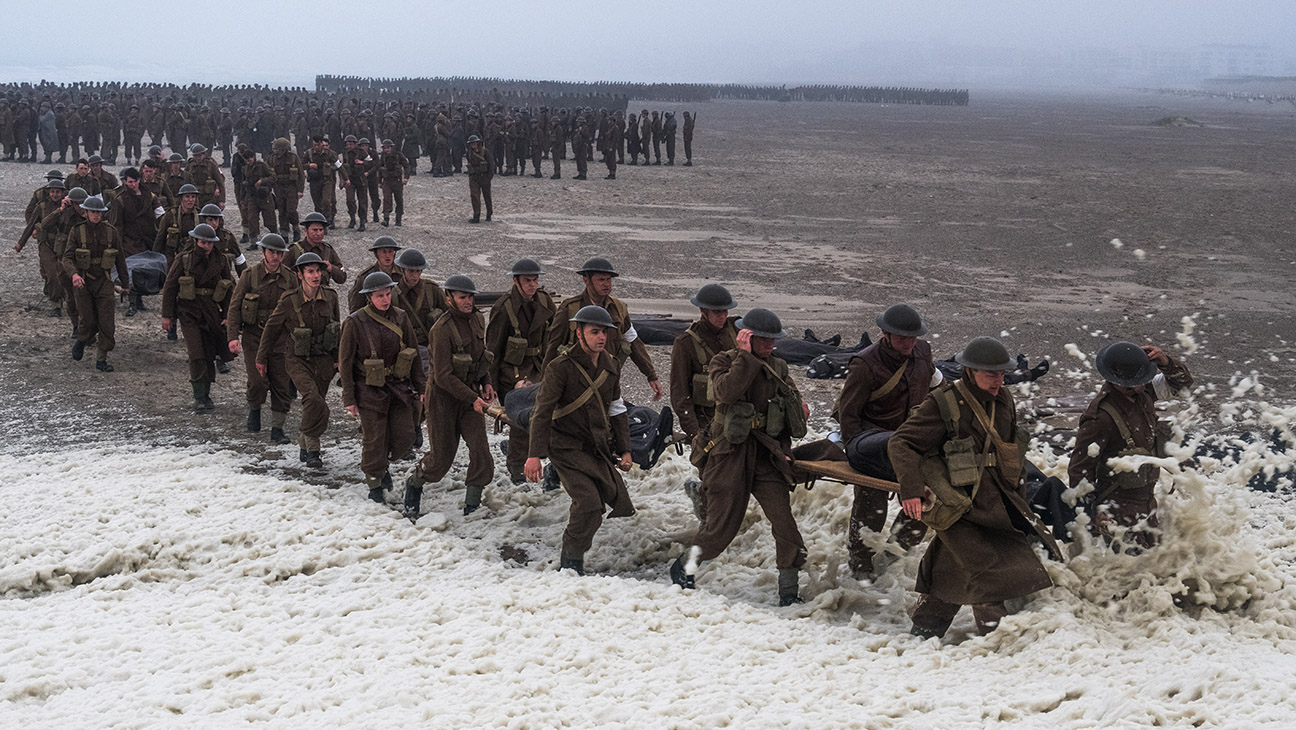In diametric opposition to my previous review of Bright, here’s something that will win an Oscar.
Dunkirk tells the story of the retreat of British forces out of France, prior to the Battle of Britain. The retreat’s entire purpose, in fact, was to have an army left to protect Britain when the Nazis attempted to cross the English Channel. Hemmed in on all sides by the Wehrmact, and periodically hammered by what little of the Luftwaffe managed to pierce British air defenses, thousands upon thousands of British troops sat and waited for salvation on the French shores of Dunkirk. Unfortunately, the nature of the beach, lack of deep water port and ever present threat of Kriegsmarine U-Boats meant that the British could either risk their surface ships, or mobilize a massive flotilla of citizen boats. The beauty of this film is that it tells all the stories, in a rather balanced kind of way. If you’re on the beach getting bombed, you’re asking yourself where’s the airforce. The air force knows that if they’re dogfighting on your head, then that means that the enemy has already slipped through your defences. The navy knows that big, slow warships aren’t the best troop transports, but you make do with what you can.
So you get to the actual film, where you follow four storylines. Much to Christopher Nolan’s credit, he does each story line justice in just 2 hours. You have the soldier on the beach trying to catch a ride home, when every attempt he makes results in death and destruction, he fights on. You have the British family on their pleasure boat doing their duty to cross the channel in an attempt to save as many as they can, who stumble across single soldier atop of sunken ship suffering greatly from PTSD (back when it was just known as shell shock). You have the hot shot pilot in his beat up Spitfire giving his all to protect the skies over all of this. Finally, you have the admirals and generals on the shore just trying their best to make the impossible happen. It’s fascinating, and the acting from every single one of these leads was noteworthy. Of course Kenneth Branagh was masterful, as were other British acting stalwarts Mark Rylance and James D’Arcy. Cillian Murphy continues to be underrated in my eyes, while Tom Hardy embodies stoic swagger. I’ll even give credit to Harry Styles, of One Direction fame, for putting in a much better than expected performance. However, I’m going to give the prize to newcomer Fionn Whitehead, who plays Tommy the normal regular infantryman. He had a lot on his shoulders, and he carried it well.
To say that this is a pretty movie is an understatement. Largely shot on IMAX, that was lost to me as I waited until I could stream it on Amazon Prime ($5.99). However, the visual impact was stunning. When there was CG, it was seamless, and every frame was a painting.
One of the hard things about reviewing a historical period piece is that you already know how it ends, but unless you really focused on the beginning of the Second World War in school, you probably don’t realize just how poorly things went for the Allies at first. Nor do you know the kind of grit and determination that helped our European friends persevere and overcome. There’s a lot to be said about the impact of American reinforcements being integral to winning the war, but what I’m getting at is that there almost weren’t Allies there for us to reinforce! This movie does a masterful job of communicating both that despair, and the appreciation the for sacrifice those soldiers, sailors and airmen paid in order to hold back the enemy.
I really can’t recommend this movie highly enough if you’re interested in history. I wish I had seen it in the theater.

Tell us what you think!